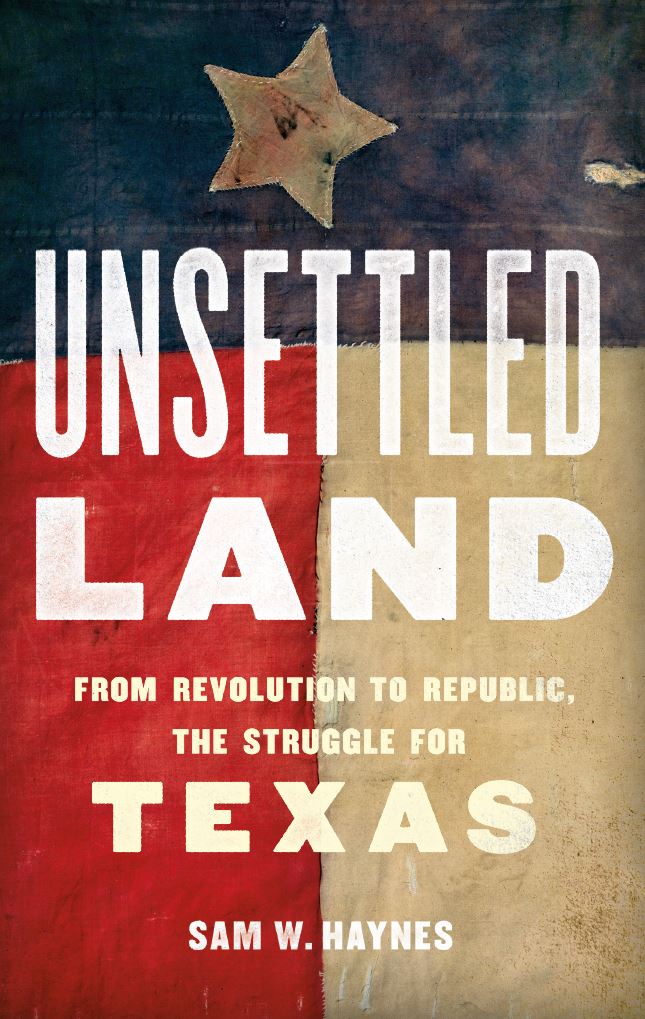A wider lens—and new insight—on Texas history

In Sam W. Haynes’ new book, Unsettled Land: From Revolution to Republic, the Struggle for Texas, the professor of history at The University of Texas at Arlington offers a new interpretation of the founding of early modern Texas—with a narrative that challenges the well-known origin story of the Lone Star State.
“The birth of early modern Texas is a complex story, with a great many moving parts,” Haynes said. “It shares the spotlight with other narratives to adopt a wider lens and understand not just the role of white men, but also of women, Mexicans, Mexican Texans, Native Americans and African Americans—important people who have been ignored completely. There's this false sense that Texas has only recently become ethnically diverse, and that is not the case.”

The familiar story of the Texas Revolution is often told as a saga of all white males fighting for the cause of independence at the Alamo. Haynes, also the director of UTA’s Center for Greater Southwestern Studies, set out to change the conversation and go beyond the traditional narrative.
“What is never pointed out is that Texas is one of the most ethnically and racially diverse regions in North America and in the 1830s, so many people are left out of that story,” he said. “Hundreds of significant players changed sides among dozens of different causes. Most had no idea what others were thinking or doing because the distances were so wide and land routes so rough.”
Haynes’ interest in Texas history began when he was in graduate school and teaching seventh graders the subject.
“I became fascinated with Texas history and particularly the fact that Texas had been a country for 10 years from 1836 to 1845,” he said. “Everybody knows the story, or they think they know the story.”
Haynes argues that in the 21st century, a more inclusive narrative is needed on the birth of early modern Texas. He wrote this book in hopes that it would be “fun for everyone to read.”
“I wanted to write this book as if I was telling the story for the first time,” he said. “When a wider lens is used, a fuller—and, in many ways, richer—picture of Texas in the early 19th century comes into view.”